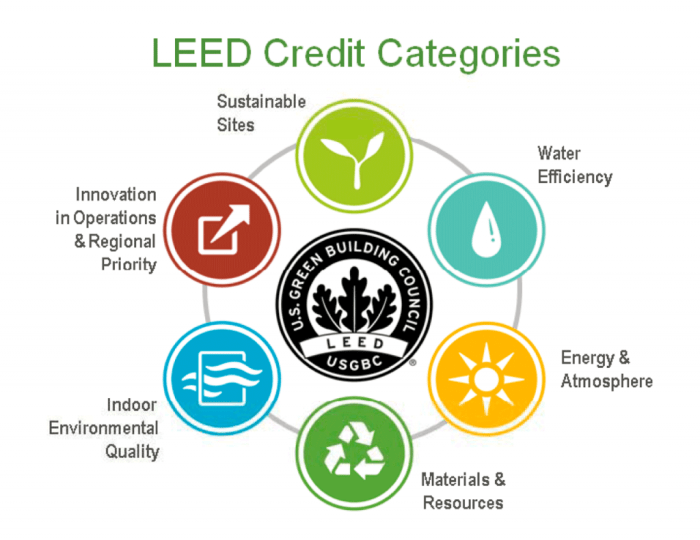Hotels With Eco-Certifications And Green Initiatives
Hotels with Eco-Certifications and Green Initiatives are more than just places to stay; they embody a movement toward a more sustainable future. As awareness of environmental issues grows, many travelers seek accommodations that reflect their values, making eco-certifications a vital aspect of the hospitality industry. These certifications not only signify a commitment to sustainability but also reassure guests that their choices can lead to a positive impact on the planet.
From reducing energy consumption to sourcing local materials, hotels are embracing innovative practices that minimize their ecological footprint. Eco-certifications come in various forms, offering travelers a broad spectrum of options to choose from, ensuring that their stay contributes to the well-being of the environment and the community.
Introduction to Eco-Certifications in Hospitality
In an era where sustainability is becoming a priority, eco-certifications in the hotel industry have emerged as vital indicators of a property’s commitment to environmentally friendly practices. These certifications not only highlight a hotel’s efforts to reduce its ecological footprint but also serve as a guide for environmentally conscious travelers seeking responsible lodging options.Eco-certifications encompass a variety of standards designed to assess and promote sustainable practices within the hospitality sector.
Some of the most recognized certifications include LEED (Leadership in Energy and Environmental Design), Green Key Eco-Rating, and Earth Check, among others. Each certification has its own specific criteria and focus, from energy efficiency to waste management and community engagement.
Types of Eco-Certifications
Understanding the different types of eco-certifications available to hotels is essential for recognizing their impact on the hospitality industry. These certifications can vary significantly in their requirements and focus areas.
- LEED Certification: This globally recognized certification evaluates buildings based on sustainable site development, water savings, energy efficiency, materials selection, and indoor environmental quality.
- Green Key Eco-Rating: This program assesses hotels based on their environmental practices, focusing on energy and water conservation, waste management, and community efforts.
- Earth Check: This certification offers a comprehensive framework to measure and improve environmental performance, emphasizing carbon footprint reduction and sustainability in operations.
- Green Globe: This certification is focused on sustainable tourism and recognizes organizations that are dedicated to environmental and social responsibility.
The benefits of eco-certifications extend beyond the recognition and marketing advantages for hotels. They also play a significant role in fostering consumer trust and loyalty.
Benefits of Eco-Certifications
Eco-certifications provide numerous advantages both for consumers and hotel operators. By adopting these certifications, hotels can demonstrate their commitment to sustainable practices, which can lead to increased customer satisfaction and retention.
- Increased Customer Attraction: Eco-conscious travelers actively seek accommodations that align with their values, making eco-certified hotels more appealing.
- Operational Cost Savings: Implementing energy-efficient practices can lead to substantial cost savings for hotels over time, enhancing their profitability.
- Positive Brand Image: Certification enhances a hotel’s reputation, promoting a positive image that can distinguish it from competitors.
- Market Differentiation: Eco-certifications provide a competitive edge in the crowded hospitality market, aligning with growing consumer trends towards sustainability.
“Sustainable practices in hospitality are not just beneficial for the environment; they also create a lasting impact on guest experiences and operational efficiency.”
The increasing importance of eco-certifications emphasizes the need for hotels to engage in sustainable practices that resonate with today’s travelers, ultimately contributing to a healthier planet and a responsible hospitality industry.
Green Initiatives in Hotels

Source: squarespace-cdn.com
The hospitality industry has recognized the urgent need to address environmental challenges, leading many hotels to adopt innovative green initiatives. These initiatives not only minimize the environmental impact but also enhance the overall guest experience, creating a win-win situation for both the planet and the people who inhabit it. By focusing on sustainable practices, hotels can contribute to a healthier ecosystem while promoting responsible tourism.One of the most significant ways hotels are reducing their environmental footprint is through the implementation of energy-saving technologies.
These technologies are designed to enhance efficiency and reduce waste, allowing hotels to operate sustainably without compromising guest comfort. Examples include:
Energy-Saving Technologies in Eco-Friendly Hotels
Hotels are increasingly turning to advanced technologies to save energy and lower greenhouse gas emissions. The following technologies are commonly adopted:
- LED Lighting: Many hotels are replacing traditional lighting with LED fixtures, which consume significantly less energy and last longer, reducing both costs and waste.
- Smart Thermostats: These devices allow guests to adjust heating and cooling settings more efficiently, optimizing energy use based on occupancy and preferences.
- Solar Panels: Some hotels are investing in solar power systems to generate renewable energy, helping to reduce reliance on fossil fuels and lower energy costs.
- Energy-Efficient Appliances: Utilizing ENERGY STAR-rated appliances for laundry, kitchens, and guest rooms not only saves energy but also enhances overall operational efficiency.
The integration of these technologies demonstrates a commitment to sustainability while providing guests with modern amenities that enhance their stay.Sustainable sourcing plays a pivotal role in hotel operations, ensuring that all products and services are obtained in an environmentally and socially responsible manner. This approach encompasses everything from food and beverage offerings to the materials used in hotel furnishings and supplies.
Sustainable Sourcing in Hotel Operations
The importance of sustainable sourcing cannot be overstated, as it directly affects the local community and ecosystem. Hotels that prioritize sustainable sourcing typically consider the following factors:
- Local Ingredients: Many hotels partner with local farms and suppliers to provide fresh, seasonal ingredients, supporting the local economy and reducing the carbon footprint associated with transportation.
- Eco-Friendly Products: Hotels are increasingly opting for cleaning supplies and toiletries made from natural, biodegradable ingredients, minimizing environmental harm.
- Responsible Procurement: Purchasing materials and furnishings from companies that practice ethical labor and sustainable production methods ensures that the hotel’s supply chain is responsible.
- Waste Reduction Initiatives: Many hotels implement programs to reduce waste by sourcing products with minimal packaging and encouraging recycling throughout their operations.
By embracing sustainable sourcing, hotels not only demonstrate a commitment to environmental stewardship but also enhance their reputation among eco-conscious travelers, fostering loyalty and positive word-of-mouth.
Case Studies of Certified Hotels
The journey of eco-certification in the hospitality industry is marked by inspiring examples of hotels that have transformed their operations to embrace sustainability. These certified hotels not only contribute positively to the environment but also enhance the overall experience for their guests, creating a unique blend of luxury and responsibility.Among the many certified establishments, a few stand out due to their innovative green initiatives and dedication to sustainability.
These hotels have adopted eco-friendly practices that align with their commitment to protecting the planet while offering memorable stays for their guests.
Notable Certified Hotels and Their Green Initiatives
Several hotels have achieved recognition for their eco-friendly practices. Below are some notable examples along with their specific green initiatives:
- The Proximity Hotel, Greensboro, North Carolina: This hotel is a pioneer in sustainable hospitality. It was the first hotel in the U.S. to receive the LEED Platinum certification. The Proximity Hotel utilizes solar panels for energy, recycles waste, and has a green roof that helps with insulation.
- Hotel Terra, Jackson Hole, Wyoming: This eco-friendly hotel focuses on energy efficiency and sustainable building materials. Hotel Terra features a geothermal heating and cooling system and a rooftop garden. Additionally, they offer organic and local food options in their restaurant, minimizing their carbon footprint.
- Green House Hotel, Bournemouth, England: The Green House Hotel prides itself on being the UK’s first carbon-negative hotel. It offsets more carbon than it emits by investing in renewable energy sources and sustainable practices. They offer locally sourced breakfast options and support environment-friendly suppliers.
The guest experiences at certified hotels can differ significantly from those at traditional hotels. Certified hotels typically emphasize not only comfort and luxury but also sustainability, which resonates with eco-conscious travelers.
Guest Experiences at Certified Hotels
Guests often report feeling more connected to nature and the environment when staying at eco-certified hotels. The following points illustrate the enhanced experiences offered by these establishments:
- Enhanced Comfort: Eco-certified hotels often prioritize the use of non-toxic materials and natural furnishings, providing a healthier indoor environment.
- Unique Amenities: Many certified hotels offer sustainable amenities such as refillable toiletries, energy-efficient lighting, and locally sourced food, giving guests a sense of contributing to environmental efforts.
- Educational Opportunities: Certified hotels frequently provide guests with information on their sustainability practices, encouraging awareness and engagement with eco-friendly initiatives.
In comparison, traditional hotels may focus solely on luxury and service, sometimes at the expense of sustainable practices. The growing preference for eco-certification among travelers highlights an important shift in the hospitality industry, as guests increasingly seek accommodations that reflect their values and commitment to the planet.
Challenges Faced by Hotels Implementing Green Practices
The journey towards sustainability in the hospitality industry is often lined with obstacles. Hotels striving for eco-certifications encounter a variety of challenges that can complicate their commitment to green practices. These challenges not only test their resolve but also impact their operational strategies and financial outlook.Hotels pursuing eco-certifications face several common challenges. One major hurdle is the need for comprehensive staff training.
Employees must understand and embrace new sustainable practices, which can require significant time and resources. Additionally, the implementation of green initiatives often demands an overhaul of existing systems, which can be both costly and time-consuming.
Financial Implications of Adopting Green Practices
The financial impact of adopting green practices can be substantial. While many hotels recognize the long-term savings associated with energy efficiency and waste reduction, the upfront costs can deter initial investment. Adopting sustainable technologies such as solar panels or energy-efficient lighting requires considerable capital. Hotels also face the challenge of balancing green investments with maintaining competitive pricing. Many customers are increasingly eco-conscious and willing to pay a premium for sustainable options, but this does not apply universally.
Thus, hotels must navigate the fine line between enhancing their sustainability practices and ensuring affordability for their guests.
“Investing in sustainability is not just an expense; it is an investment in the future of the hotel.”
Impact of Regulatory Requirements on Sustainability
Regulatory requirements can significantly influence the sustainability journey of hotels. Governments around the world are implementing stricter environmental regulations aimed at reducing carbon footprints and promoting sustainable practices. Compliance with these regulations often requires substantial changes in operations, leading to increased costs and complexity for hotels.Furthermore, navigating varying regulations across different regions can be challenging, particularly for hotel chains operating in multiple locations.
Each region may have its own set of standards and certification processes, complicating the implementation of uniform sustainability practices. Hotels must also stay informed on evolving regulations. As sustainability continues to gain traction, regulations will likely become more stringent. This constant change can create uncertainty and may require ongoing investment to remain compliant.
“Sustainability is a journey, not a destination; staying compliant is part of the path.”
Overall, while the road to sustainability is fraught with challenges, hotels that persevere can transform obstacles into opportunities for growth and innovation.
Future Trends in Eco-Certifications for Hotels
As the world increasingly embraces sustainability, the hospitality industry is undeniably following suit. Eco-certifications are becoming more than just a trend; they are evolving into essential standards for hotels worldwide. This shift reflects a growing awareness among travelers about the environmental impact of their choices and the role that hotels play in mitigating these effects. The future of eco-certifications in hospitality promises to be dynamic, with innovative technologies and practices paving the way for a greener tomorrow.Emerging technologies are set to revolutionize sustainability efforts in hotels, making eco-certifications more accessible and effective.
These advancements can significantly reduce waste, energy consumption, and carbon footprints while enhancing guest experiences. Moreover, new green initiatives are on the horizon, poised to further elevate the standards of eco-conscious hospitality.
Emerging Technologies Enhancing Sustainability
The adoption of cutting-edge technologies is transforming how hotels operate, promoting eco-friendly practices. By integrating these technologies, hotels can achieve greater efficiency and sustainability. Key advancements include:
- Smart Energy Management Systems: These systems utilize artificial intelligence to optimize energy consumption. By analyzing real-time data, hotels can adjust heating, cooling, and lighting, reducing energy waste without compromising guest comfort.
- Water Conservation Technologies: Innovations like low-flow fixtures, smart irrigation systems, and greywater recycling systems enable hotels to significantly reduce water usage. These technologies help conserve a precious resource while lowering operating costs.
- Renewable Energy Solutions: Solar panels and wind turbines are becoming increasingly common in hotel operations. Harnessing renewable energy sources allows hotels to reduce their reliance on fossil fuels, contributing to a lower carbon footprint.
- Waste Management Solutions: Advanced waste sorting systems and composting technologies help hotels minimize waste sent to landfills. These solutions promote recycling and composting, supporting a circular economy.
Innovative Green Initiatives for Hotels
The hospitality industry is continually seeking new ways to enhance sustainability through innovative initiatives. These initiatives not only contribute to eco-certifications but also resonate with environmentally conscious travelers. Noteworthy examples of innovative green initiatives include:
- Plant-Based Menus: Many hotels are introducing plant-based dining options, focusing on locally sourced ingredients. This reduces the carbon footprint associated with food production and transportation while catering to a growing demographic of environmentally aware consumers.
- Sustainable Building Practices: New constructions and renovations increasingly incorporate sustainable materials and energy-efficient designs. Utilizing reclaimed wood, recycled materials, and green roofs are just a few examples of how hotels are building for the future.
- Community Engagement Programs: Hotels are increasingly partnering with local communities to promote sustainability. Initiatives such as beach clean-ups, tree planting days, and local conservation projects help hotels give back while enhancing their eco-image.
- Guest Participation Programs: Encouraging guests to participate in green initiatives, such as towel reuse programs and in-room recycling bins, promotes environmental consciousness among visitors and fosters a culture of sustainability.
How to Choose an Eco-Certified Hotel

Source: prestigeonline.com
Selecting the right eco-certified hotel can significantly enhance your travel experience while supporting sustainable practices. As more travelers seek accommodations that align with their values, understanding what to look for in eco-certified hotels becomes essential. This guide aims to equip you with the knowledge necessary to make informed choices that contribute to environmental responsibility.Transparency in eco-certifications is crucial. It allows travelers to understand what specific initiatives each hotel undertakes, ensuring that the certifications are not merely marketing tactics but represent genuine commitment to sustainability.
Look for hotels that openly share their environmental policies, energy-saving measures, waste management practices, and community involvement.
Key Features to Look For in Eco-Certified Hotels
When searching for an eco-certified hotel, certain features can indicate a genuine commitment to sustainability. Consider the following checklist to aid in your selection:
- Recognized Certifications: Ensure the hotel holds legitimate eco-certifications from recognized organizations, such as Green Key, LEED, or EarthCheck.
- Energy Efficiency: Look for hotels that implement energy-saving technologies, such as LED lighting, solar panels, and energy management systems.
- Water Conservation: Hotels should have systems in place for water conservation, like low-flow fixtures and rainwater harvesting.
- Waste Management: Check if the hotel has practices for reducing, recycling, and composting waste.
- Local Sourcing: Preference should be given to hotels that use locally sourced food and products, supporting the local economy and reducing carbon footprints.
- Education and Engagement: A commitment to educating guests about sustainability practices and engaging them in eco-friendly initiatives can enhance your experience.
- Community Involvement: Look for hotels that actively participate in local conservation efforts or support community projects.
By focusing on these features, travelers can ensure their choices align with sustainable tourism practices, ultimately contributing to a healthier planet. It is essential to approach eco-certifications with a critical eye, ensuring that the hotels genuinely prioritize sustainability over mere profit.
“Choosing an eco-certified hotel is a step toward responsible travel, impacting the environment positively while enjoying your stay.”
The Role of Guests in Promoting Sustainability
Guests play a crucial role in supporting sustainable practices within the hospitality industry. Their choices and behaviors can significantly influence hotels to adopt and maintain eco-friendly initiatives. By being conscious of their environmental impact during their stay, guests not only contribute to the hotel’s sustainability efforts but also encourage other travelers to do the same.Guest behavior has a direct effect on a hotel’s environmental practices.
When guests prioritize sustainability, hotels are more likely to invest in green technologies and practices to meet their expectations. For instance, if a hotel notices that many guests are opting for towels and linens reuse, it may reinforce their commitment to water conservation practices. This positive feedback loop encourages hotels to continue enhancing their eco-certifications and green initiatives.
Actions Guests Can Take to Support Sustainability
There are various ways guests can contribute to sustainability during their hotel stay. Adopting eco-friendly behaviors not only enhances their experience but also supports the hotel’s commitment to the environment. Here are some of the key actions guests can take:
- Opt for digital communication instead of paper brochures, menus, or promotional materials to reduce paper waste.
- Participate in linen and towel reuse programs to help conserve water and energy.
- Use reusable water bottles and containers instead of single-use plastics provided by the hotel.
- Turn off lights, heating, and air conditioning when leaving the room to conserve energy.
- Support local businesses and farmers by dining at restaurants that source ingredients locally.
- Engage in recycling and proper waste disposal practices during their stay.
- Provide feedback to hotel management regarding their green initiatives to encourage continuous improvement.
Guest feedback is vital in shaping hotel green initiatives. When guests express their support for sustainable practices, it sends a clear message to hotel management about what is valued in the hospitality experience. Constructive feedback can prompt hotels to enhance their eco-friendly offerings or implement new initiatives that align with guest expectations. For example, a hotel may decide to install solar panels or improve its waste management system if it receives positive commentary about energy usage and waste reduction.
“Every choice a guest makes during their stay can help pave the way for a greener future in hospitality.”
Resources for Further Learning
Understanding eco-certifications and green initiatives in the hospitality industry is crucial for promoting sustainable travel. There are numerous resources available for those who wish to dive deeper into the principles and practices of eco-friendly accommodations and their impact on the environment.Access to reputable organizations and informative publications can provide valuable insights into sustainability in hotels. This knowledge not only benefits travelers but also encourages hotels to adopt more responsible practices.
Community involvement plays a significant role in supporting and advocating for eco-friendly travel, making it essential for both guests and local residents to engage in these efforts.
Organizations and Websites Focused on Eco-Certification in Hotels
A variety of organizations and websites offer valuable information and certifications to guide hotels in adopting sustainable practices. These resources also help travelers identify eco-friendly options.
- Green Key Global: An international eco-label awarded to hotels and other types of accommodation that meet strict environmental standards.
- EarthCheck: A leading environmental certification program that helps businesses in the travel and tourism sector improve sustainability practices.
- LEED (Leadership in Energy and Environmental Design): A globally recognized symbol of sustainability achievement in design and construction.
- Travelers’ Choice Green Leaders: An initiative by TripAdvisor that recognizes hotels committed to green practices.
- Global Sustainable Tourism Council (GSTC): Establishes and manages global standards for sustainable travel and tourism.
Publications and Studies Related to Sustainability in Hospitality
A wealth of studies and publications provides insight into the importance of sustainability in the hospitality industry. These resources highlight successful practices and innovative approaches that hotels can adopt.
- Sustainable Hospitality: How to Manage Green Practices in the Hotel Industry by Albert W. Smith – A comprehensive guide on integrating sustainability into hotel management.
- Green Hotels: The Sustainable Future of Hospitality – A research paper examining the benefits of adopting eco-friendly practices in hotels.
- The International Journal of Hospitality Management: Publishes various studies that focus on sustainability and green initiatives in the hotel industry.
- United Nations World Tourism Organization (UNWTO) Reports: Offers extensive research on sustainable tourism and its impact on global travel.
Community Involvement in Supporting Eco-Friendly Travel
Community involvement is vital for the success of eco-friendly initiatives in the hospitality sector. Local residents can help promote sustainable practices by advocating for environmentally responsible tourism and supporting hotels that prioritize green initiatives.
- Engaging with local environmental organizations to promote responsible tourism.
- Participating in community clean-up events to enhance the local environment.
- Encouraging local businesses to adopt sustainable practices, fostering a culture of sustainability.
- Creating awareness campaigns that emphasize the importance of choosing eco-certified hotels.
“The collaboration between hotels, communities, and travelers is essential for driving meaningful change towards sustainability in the hospitality sector.”
Summary

Source: amazonaws.com
In conclusion, as the demand for sustainable travel grows, hotels with eco-certifications and green initiatives stand at the forefront of this important change. By adopting environmentally friendly practices, these hotels not only enhance guest experiences but also pave the way for a more sustainable future in the hospitality industry. Choosing an eco-friendly hotel is not just about comfort; it’s about making a conscious choice to support a healthier planet for generations to come.
Popular Questions
What are eco-certifications?
Eco-certifications are official recognitions that hotels meet specific environmental standards, demonstrating their commitment to sustainability.
How can I find eco-certified hotels?
You can search for eco-certified hotels through various travel websites and organizations that specialize in sustainable accommodations.
Are eco-certified hotels more expensive?
While some eco-certified hotels might have higher rates due to their sustainable practices, many offer competitive pricing that reflects the value of their eco-friendly initiatives.
What should I look for in an eco-certified hotel?
Look for visible certifications, energy-saving practices, waste reduction strategies, and the use of local and organic products.
Can guests contribute to a hotel’s sustainability efforts?
Yes, guests can support sustainability by conserving energy, reducing water use, and providing feedback to hotels on their practices.





